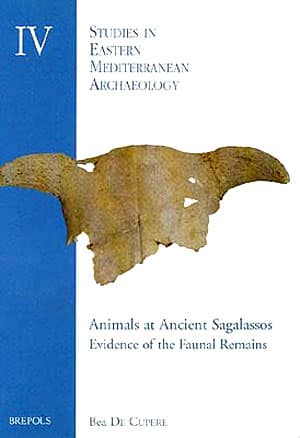Studies in Eastern Mediterranean Archaeology IV - SEMA IV
271 pp, b/w figures, in English.
This volume deals with the exploitation of animals at Sagalassos (SW-Turkey) during Roman and Early-Byzantine times (1st to 7th centuries AD). The archaeological excavations at this site yield large quantities of animal remains that represent mainly consumption refuse of its former inhabitants. The bones, teeth and molluscs are described as well as the various traces left by animals and man on these remains. The importance of herding versus hunting and fishing is discussed, as well as the composition of the live-stock. An analysis of the mortality profiles, sex distributions and pathologies allow inferences about the use of the domestic species as a source of meat or of secondary products (wool, dairy products and animal power).
Attention is paid to butchery practices, bone-working techniques and to the use of animal remains as a means of reconstructing former trade connections. The former environment is reconstructed, using the habitat preferences of the identified species.




